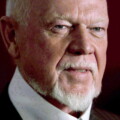In Canada’s 2021 census, more than one in three Canadians—12.6 million—reported having no religious affiliation. This figure has more than doubled in the span of twenty years. In British Columbia alone, more than half of the population reported having no religious affiliation.
It stands to reason from these statistics that many Canadians are largely unaware of the religious meaning of major faith celebrations and occasions throughout the year: Ramadan, Hanukkah, Diwali, and more.
This situation may also apply to Christmas. Many of us who are either not religious or who belong to faiths other than Christianity mark Christmas in some form or fashion. Although Christmas is widely celebrated in Canada, its origins as a religious holiday may no longer be fully understood.
So what is the religious meaning—and dare I say, as a Christian myself, the true meaning—of Christmas?
On Christmas, Christians recall the birth of a child in present-day Israel about 2000 years ago. The child’s name was Jesus, born to a Jewish woman named Mary in a stable in the town of Bethlehem.
Historians have never seriously doubted that this child in fact was born and walked upon the Earth, but Christians believe that Jesus is no ordinary child. Christians profess Jesus as God the Son sent by God the Father with the help of God the Holy Spirit. The Bible, the holy book of Christianity, says that Jesus’s conception occurred not by natural causes but by the intervention of the Holy Spirit after Mary accepted God’s invitation to bear this child.
But why was Jesus sent to dwell among us? In a nutshell, Christians believe that Jesus came to repair the relationship between God and humanity. This relationship had been broken when humanity rejected God after God created this world. This turning away from God, depicted in the story of Adam and Eve in the Garden of Eden, blocked our access to communion with God after death: in other words, our access to Heaven.
In the millennia between this turning away from God and the birth of Jesus, the people to whom the Bible says God first revealed himself—the Jewish people, the nation of Israel—came to expect that someone would eventually come to undo their separation from God. The prophet Isaiah, writing about 700 years before Jesus’s birth, predicted that “a virgin shall conceive and bear a son, and shall call his name Immanuel”. The word “Immanuel” is Hebrew for “God with us”.
As for “Christ”, this is not Jesus’s family name but a reference to his divine identity in the eyes of his followers. The word traces to the Greek word Christos, which means “anointed one”. It is thus more accurate to say he is Jesus the Christ rather than Jesus Christ.
Jesus would grow up in obscurity in a town called Nazareth until he began his public ministry at around the age of 30. He preached about his mission, revealed his divine identity, and invited those whom he encountered to follow him. The Bible says Jesus performed many miracles to relieve suffering, manifest his divinity, and exemplify the true characteristics of love.
And love is indeed the hallmark of Jesus’s teaching: the commandment to love God and to love one another. Love, in the Christian tradition, is epitomized by denying oneself and serving others. Paul of Tarsus, a follower of Jesus whose writing appears in the Bible, authored what might be the most famous description of love:
“Love is patient and kind; love is not jealous or boastful; it is not arrogant or rude. Love does not insist on its own way; it is not irritable or resentful; it does not rejoice at wrong, but rejoices in the right. Love bears all things, believes all things, hopes all things, endures all things. Love never ends.”
Christians say that Jesus’s greatest act of love is also how he fulfilled his mission of reuniting Heaven and Earth. For claiming to be God incarnate and the redeemer of the world, Jesus would be condemned to death in Jerusalem. He was tortured and nailed to a wooden cross on which he would perish. But Christians believe that, three days later, Jesus conquered death and came back to life.

Christians profess that Jesus, through his death and resurrection, reopened the gates of Heaven to humanity. They believe that Jesus took the guilt of every person who has ever lived and ever will live—a guilt stemming from our rejection of God—and bore it upon his shoulders as he carried his cross to the site of his execution.
Christians proclaim that the child born in the humblest of circumstances on the first Christmas not only changed but saved the world. In a season that is now largely defined by the giving and receiving of gifts among family and friends, Christians celebrate on Christmas Day what they believe is the greatest gift ever to have been given: a gift given not just to one person, but to all of us. That gift is Jesus.
A close friend of Jesus described this gift this way: “For God so loved the world that he gave his only-begotten Son, that whoever believes in him should not perish but have eternal life.”
I wish you and your loved ones a merry Christmas and the very best for the year to come.
Recommended for You

Michael Kaumeyer: Polite decline: Canada’s aversion to being our best is holding us back

Howard Anglin: Lament for a Lament

‘A place where anybody, from anywhere, can do anything’: The Hub celebrates Canada Day

Sean Speer: Don Cherry deserves the Order of Canada




